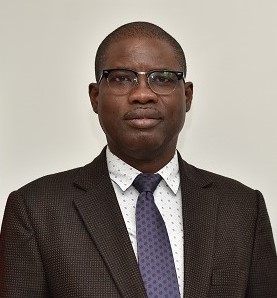Ghana may soon face a severe water crisis if urgent measures are not taken to address the increasing inefficiencies in water treatment, according to Dr Clifford Braimah, Managing Director of the Ghana Water Company Limited (GWCL).
Speaking on Joy FM’s Super Morning Show on Monday, Dr Braimah expressed deep concern over the high volumes of water loss during the treatment process, which he said have far exceeded acceptable limits.
Dr Braimah explained that the ideal water loss in treatment plants should be around 5%, but currently, losses range between 35% and 50%, a situation he described as “very harmful to our health.”
He added that the plant is at high risk, which makes the water harmful to the body when taken in, but "unfortunately, this is what we are experiencing now.”
He warned that if nothing changes, the country could reach a point where it will no longer have access to safe drinking water. "We might not even have water," Dr. Braimah cautioned. "The process losses that we are supposed to have on our plant should be 5% or less, but now we are having between 35% to 50% process loss."
He further explained the gravity of the situation, noting, “Instead of having 95% of the water going to customers, we are only getting 50% to 55%. The volume of water getting to customers is reducing.”
Moreover, Dr Braimah highlighted the increased costs associated with maintaining even this reduced supply. “Unfortunately, to even get this 50% or 55%, you have to use more chemicals—more expensive chemicals—to achieve that. Otherwise, you will not get that percentage," he said.
He emphasised the need for immediate action, stating, “Our rhetoric needs to go beyond the political jargons to the reality that citizens must take control over their lives.”
He also pointed out that while the current water treatment process is still effective in removing harmful elements, the continued accumulation of pollutants could eventually overwhelm the system. "But it does not mean that once it continues to accumulate, we are not going to get to the levels that we might not be able to do professional treatment to work," Dr. Braimah explained.
He urged Ghanaians to take the situation seriously and work to prevent further pollution, which could lead to levels that the treatment system cannot handle. "The caution is very critical for us to take up and ensure that we do not continue to pollute, so that we will get to levels that are not tolerable to the system, that can create problems for us," he said.
When asked how long it might take for the situation to reach a critical level, Dr Braimah admitted that it is difficult to predict. "It will be difficult; we have not done those analyses, and I am not in the position to put out something that I have not assessed," he said, suggesting that the Water Resources Commission might have more detailed information.
Read also : Haruna Iddrisu demands action to address water challenge in Tamale
Latest Stories
-
ECG Missing Containers: Technology alone cannot address dishonesty issues- Col. Aboagye
3 minutes -
Stay and fight the petition for your removal – MP urges Chief Justice
16 minutes -
Sammy Gyamfi rebuts claims of rushed GoldBod Bill process
33 minutes -
Cassona Global Imaging empowers future healthcare professionals with free practical training
37 minutes -
Cedi is 7th strongest currency in Africa in quarter 1 2025
50 minutes -
Ecobank remains Ghana’s top Tier-1 bank with capital of $228m
1 hour -
The MENGXIN 1 Piracy Incident: Assessing impacts, risks, and solutions in the Gulf of Guinea
1 hour -
Access, 6 other Nigerian banks ratings to be upgraded – Fitch Ratings
2 hours -
Clean Jobs Company denies engaging in illegal mining in Tano Anwia forest reserve
2 hours -
Education Minister endorses ‘Science Set’ as key to Ghana’s STEM revolution
2 hours -
CSOs silence on GoldBod due to proper consultation – Steve Manteaw
2 hours -
Three injured, one arrested after violent clashes during Eid-ul-Fitr carnival at Kasoa
2 hours -
ICASA 2025: Steering committee meets in Accra as Ghana readies to host Africa’s largest HIV/AIDS conference
2 hours -
Reimagining Regional Peace and Security: President Mahama’s Strategic Engagement in the Sahel
4 hours -
Kofi Adams sends condolences to family of late Nigerian boxer following death in Ghana
4 hours

